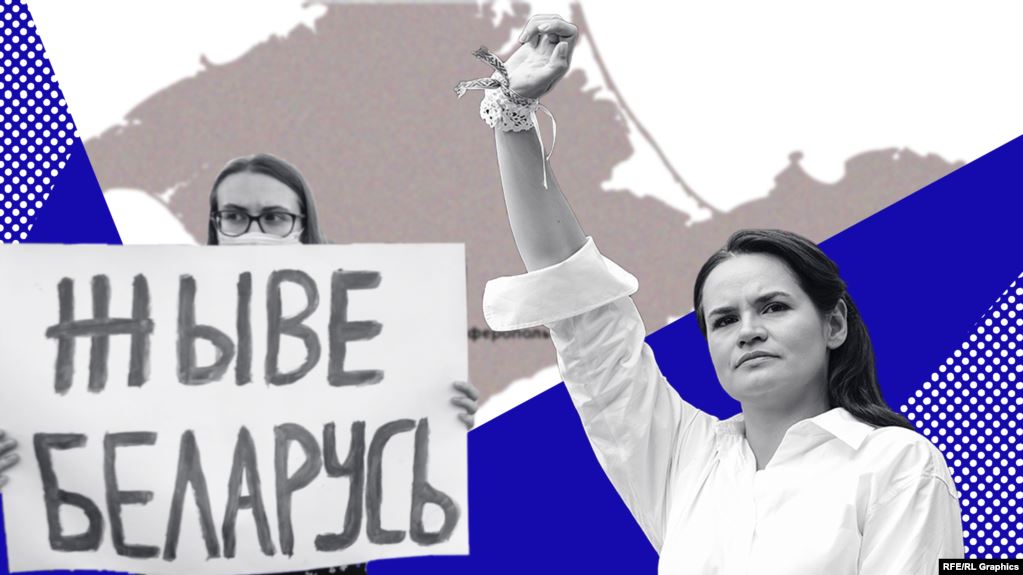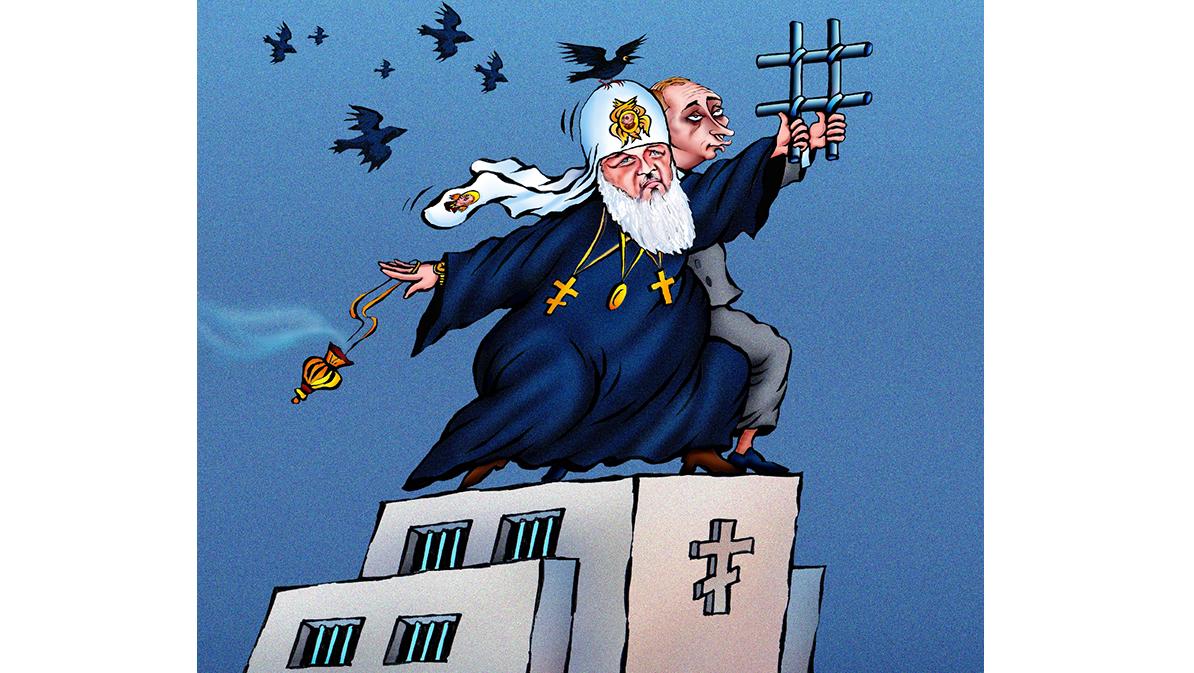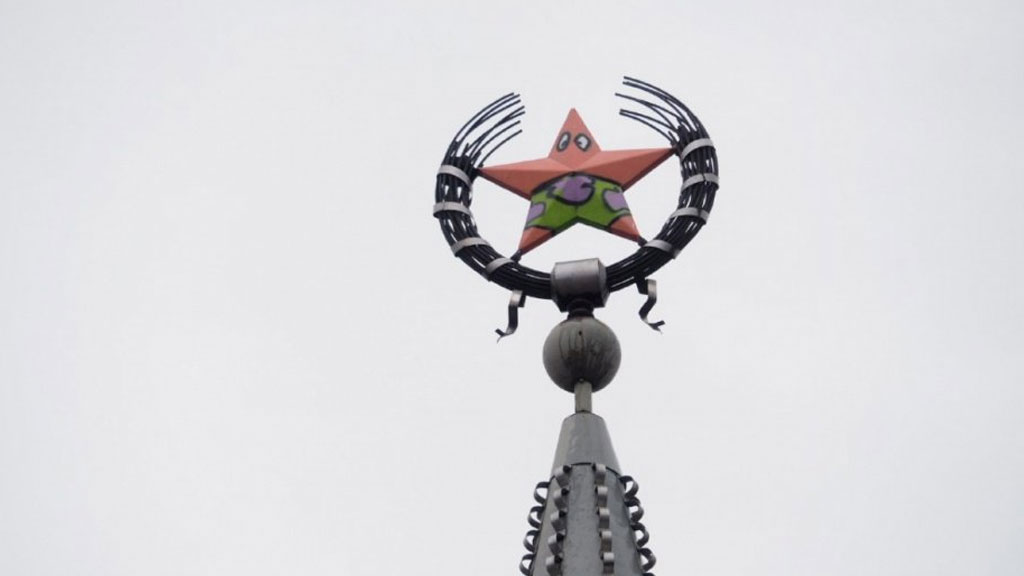At first glance, it is not difficult to understand Sviatlana Tsikhanouskaya’s logic. Belarusians with different ideals oppose the fake results of the presidential election and Alyaksandr Lukashenka’s authoritarian regime, and they all may have different views on the occupation of Crimean by the Russian Federation. But, I am convinced that Crimea poses the same question of honesty as the results of the presidential election in Belarus.
Why? Because if you agree that a country can seize the territory of another country by force and threats, hold a rigged referendum, and, on the basis of this rigged vote, declare this territory its own, and the citizens living in that territory citizens of your country, then why shouldn’t you accept and agree with the falsified results of the presidential election in your own country?
In both cases, everything is decided by force. In both cases, it is not your voice that is important, but the machine gun in the hands of a “little green man”, who seems to be cleaning his weapon and waiting for someone to give the order to shoot the protesters. In both cases, it is a violation of the law, outright disrespect for ordinary citizens, and contempt for state institutions. In both cases, the criminal actions triggered by Russian President Vladimir Putin in Crimea are no different from the heavy-handed actions of Belarusian President Alyaksandr Lukashenka.
That is why I want to underline that the issue of occupied Crimea should not polarize, but unite Belarusians. When all is said and done, Belarusians who oppose the fraudulent presidential election in their own country should also oppose Russia’s occupation of Crimea because fraud and occupation are phenomena of the same order.
As the Belarusian protests continue, I believe that this simple fact is becoming more and more obvious and needs to be clearly understood. Sviatlana Tsikhanouskaya, who spoke very cautiously on the issue of occupied Crimea during the presidential election campaign, in her interview with Lithuanian television, now says that “Crimea has come under another state in violation of international law”.
It seems that Tsikhanouskaya views on Crimea and many other fundamental issues are slowly changing. It is interesting to note that, during most of the election campaign, she addressed Belarusians in Russian, but now, having left Belarus for Lithuania, she increasingly speaks to her compatriots in their native language, a language that was forcefully banned in state institutions and public life, shunned as the language of peasants, villagers and nationalists.
The protests began under official red-green flags, which are associated not so much with Belarus as with Lukashenka’s authoritarian regime, whereas today we see the national white-red-white flags of the Belarusian people among the protesters. And, this is a logical evolution.
Why? Because holding fair elections is only one of the key elements to cementing Belarus freedom and self-determination and reviving the Belarusian nation. Without respect for one’s language, culture and national symbols, without adherence to the law, including international law trampled on by the Kremlin in Crimea, there is no point in talking about the sovereignty of Belarus, Belarusian renaissance or the formation of a strong Belarusian nation.








